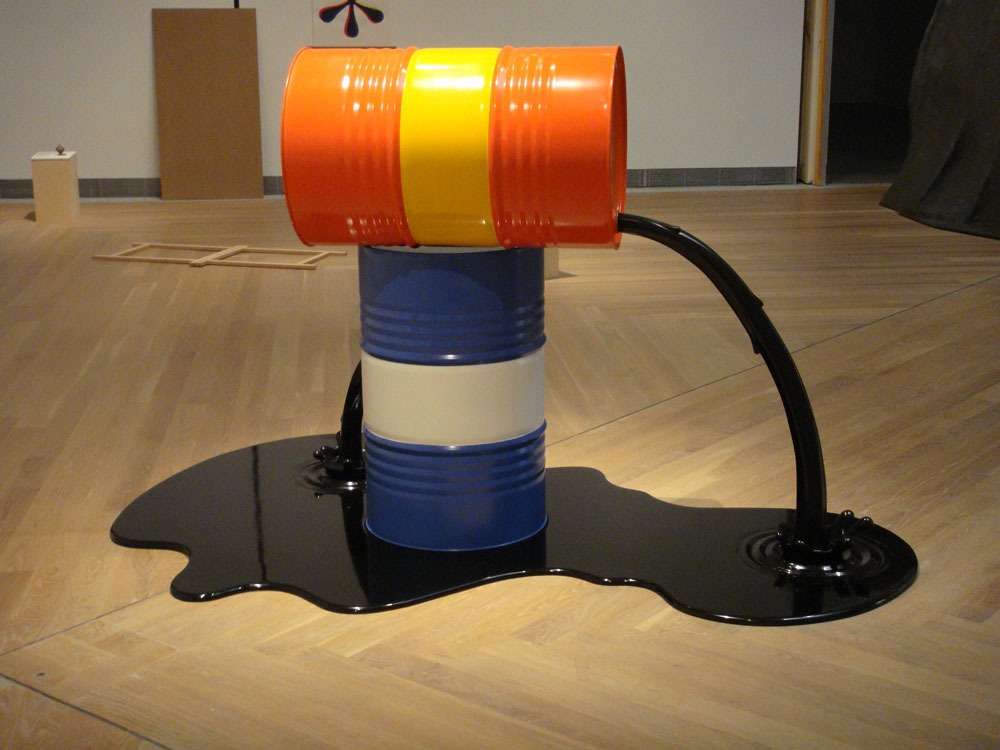
September 17, 2019; Los Angeles Times
If you are fortunate enough to have a pension or retirement account and want to scare yourself, look up the phrase “stranded assets.” Here’s the deal: as the climate crisis intensifies, pressure to switch from carbon-emitting fossil fuel to renewables will surely rise. Assuming the transition happens, this is very good news for the planet, but it is less good news for those who own oil wells, coal mines, gas pipelines, or stock in the companies that rely on extracting fuel from those sources.
Bottom line: if we are to avert catastrophe, much of the world’s remaining oil, coal, and gas needs to stay in the ground. But guess what? If fossil fuels stay in the ground, then they also must be written off of corporate balance sheets because they become worthless.
Two years ago, the International Renewable Energy Agency estimated the value of those stranded assets. The number they came up with: a cool $20 trillion. Yes, that is not a typo—the loss of wealth is slightly greater than a year’s gross domestic product for the United States.
Do you have a 401k or 403b that includes fossil fuel stocks? Of course, NPQ is not qualified to offer investment advice—you know the drill. Still, you might want to check and find out.
In California, the chief investment officer and the investment committee of the University of California (UC) did check where they were investing. What they found was that they had fossil fuel exposure. And they are selling. In fact, they have been selling for five years—and they have now come close to completing the task of divesting from fossil fuels.
As Jagdeep Singh Bachher, chief investment officer, and Richard Sherman, chair of the University of California Regent’s Investment Committee, write in an op-ed published in the Los Angeles Times this week, “Our job is to make money for the University of California, and we’re betting we can do that without fossil fuels investments.”
Sign up for our free newsletters
Subscribe to NPQ's newsletters to have our top stories delivered directly to your inbox.
By signing up, you agree to our privacy policy and terms of use, and to receive messages from NPQ and our partners.
We want to ensure that the more than 320,000 people currently receiving a UC pension actually get paid, that we can continue to fund research and scholarships throughout the UC system, and that our campuses and medical centers earn the best possible return on their investments.
They add, “We believe hanging on to fossil fuel assets is a financial risk. That’s why we will have made our $13.4-billion endowment ‘fossil free’ as of the end of this month, and why our $70-billion pension will soon be that way as well.”
The shift is working fine so far. In April 2014, UC had $91.6 billion in assets under management. As of June 30, 2019, the total portfolio stood at $126.1 billion.
They add, “During that same time frame, we made no new investments in fossil fuels and four years ago, we sold our exposure to coal and oil sands. We found them too risky…we continue to believe there are more attractive investment opportunities in new energy sources than in old fossil fuels.”
They conclude, “The reason we sold some $150 million in fossil fuel assets from our endowment was the reason we sell other assets: They posed a long-term risk to generating strong returns for UC’s diversified portfolios.”
Of course, at NPQ we have written regularly about the fossil fuel divestment movement; assets held by divesting institutions worldwide exceed $7 trillion. There are certainly many ecological reasons to divest. But, even if events like today’s climate strike don’t sway you, there might also be, as Bachher and Sherman warn us, some very sound financial reasons to act as well.—Steve Dubb












